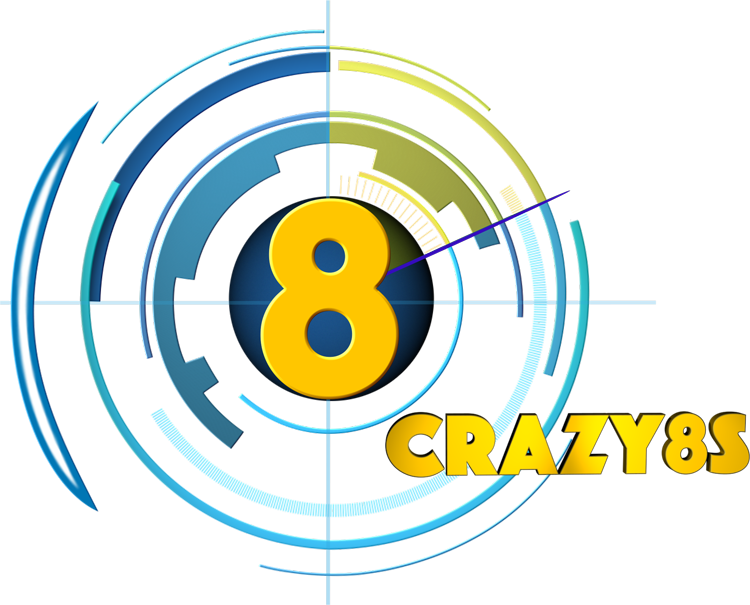Written by Erin Mussolum, Co-Executive Director, Crazy8s Film Society
President, Chickadee Creative www.chickadeecreative.org
There are a lot of great blockbuster movies just waiting to land on fertile development soil. However, getting that idea out of your head as a creator and into other people’s minds can sometimes be the difference between getting something made or having it live forever as a dream only you can see. The connection between our imaginations and our mouths is sometimes wider than the universe’s expanse.
Throughout my career as a producer, writer and pitching coach, I have been on the receiving end of thousands of pitches, successfully pitching a few of my own too. I have seen and experienced first-hand the confusion and disconnect between what we can clearly see in our minds to what we convey verbally and on the written page.
As we gear up for our Crazy8s Pitch and Registration Workshop this upcoming Sunday October 18th from 2:00-3:30pm I wanted to pass on a few thoughts and ideas on pitching, starting first with the thing we all love to hate – the dreaded logline.
Why do we love to hate it? It’s the one to two sentences max that is supposed to sum up 120 minutes of screen time. And when your imagination is ripping with colourful worlds, complex characters, interesting plot twists, it’s sometimes unbearable to boil it all down into a humble TV listing. But therein lies the power of the logline.
Let’s take a closer look at it.
The logline is the skeleton of your story. Without this stable backbone you just have mushiness…no frame, and no shape. This is the line you say when descending in an elevator with a Hollywood elite showrunner and you have four floors to get your idea out. This is the line that you’ll refer to, to keep your writing and editing truthful and on track. This is the line that will appear in ALL of your publicity materials until the end of time. This is the line that people will regurgitate at parties after using the phrase “Have you seen (insert your film’s title)? It’s about (insert your logline).
If you can’t explain it in one sentence then you don’t know your story. #harshbuttrue
Award-winning stories set in complex worlds with even more complex characters, at their heart are not complex stories. They are award-winning for a reason. They are simple to grasp, rich with human condition and truly universal. Complexity happens, especially in fantasy or sci fi genres, where creators feel the need to overly share all of their characters and worlds. The result is a cluttered pitch with bizarre character names, physical appearances, strange planet names, and the receiver is bogged down with EVERYTHING but the story. So let’s look at a few loglines that I pulled from IMDB…just to see some fails and some successes.
Here’s MY personal ratings of a few movie loglines.
6 Underground. “Meet a new kind of action hero. Six untraceable agents, totally off the grid. They’ve buried their pasts so they can change the future.” Score: 5/10
This tells me NOTHING about what I’m going to see…and isn’t this every Bond or Mission Impossible film? Isn’t everyone off grid and untraceable as agents? I had the unfortunate chance to watch this movie which was so dumb (sorry, not sorry Michael Bay) that I had to look up the logline because I honestly had no idea what the story was. I think the logline should read: one gigantic car chase and a big boat that cost $150 Million.
Handmaid’s Tale “Set in a dystopian future, a woman is forced to live as a concubine under a fundamentalist theocratic dictatorship.” Score: 8/10
I get this logline. I know it’s set in the future, and that there is drama between the woman and the dictatorship. This makes me want to know more and I can grasp what the story might be. I think the writer could have added another nugget of universality but alas – it was a good attempt.
Tenet “Armed with only one word, Tenet, and fighting for the survival of the entire world, a Protagonist journeys through a twilight world of international espionage on a mission that will unfold in something beyond real time.” Score: 7/10
What I love about this is that they just use the word “protagonist” they don’t need to describe this person in detail, mention any names or explain the “something beyond real time”. It doesn’t clutter things. Is it elevator worthy? Not sure, but it’s not terrible.
Predator “When a young boy accidentally triggers the universe’s most lethal hunters’ return to Earth, only a ragtag crew of ex-soldiers and a disgruntled scientist can prevent the end of the human race.” Score 8.5/10
See how the writer doesn’t have to explain how the boy triggers these lethal hunters, nor what the hunters look like? We get it. Then we see that the story will revolve around ex-soliders and scientists – always a push pull relationship. For a sci fi show I feel like they really nailed this.
And finally the classic:
JAWS “When a killer shark unleashes chaos on a beach community, it’s up to a local sheriff, a marine biologist, and an old seafarer to hunt the beast down.” Score: 9/10
Similar to Predator, this logline sets it all up and I know what I’m going to see. It’s simple. We all can identify with a killer shark (enter universal story) and then they’ve thrown in three characters, all different with different motivations, and you know there will be drama between them because of their differing roles.
So here’s a fun homework assignment. Do some searching through movies you have seen on IMDB and see if you agree or disagree with their loglines. Then figure out where they nailed it or missed the mark.
The logline is one of THE hardest things to write – so don’t be discouraged if you have to write and rewrite it over and over again. When you get to the pitching stage you’ll KNOW without a shadow of a doubt what your story is about and have carefully chosen each word for maximum power.
Want to know more about pitching? Pick up a copy of our How to Pitch a Short Film – Ebook
And attend our #Crazy8sFilms21 – Online Registration & Pitch Info Session – https://bit.ly/2Ijkxzj

